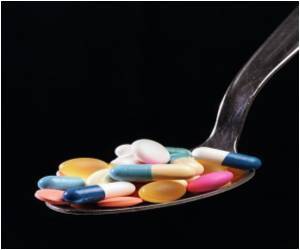Traumatized people who take common blood pressure drugs have less severe post-traumatic stress disorder symptoms, find researchers.

The results were published online May 1 in the Journal of Clinical Psychiatry.
"These results are particularly exciting because it's the first time ACE inhibitors and ARBs have been connected to PTSD, and it gives us a new direction to build on," says senior author Kerry Ressler, MD, PhD, associate professor of psychiatry and behavioral sciences at Emory University School of Medicine and a researcher at Yerkes National Primate Research Center.
"These data come from an observational study, not a randomized clinical trial, so it is important to limit our interpretation until larger, placebo-control, double-blinded trials can be performed. Still, they provide evidence from a human population that could be followed up in a rigorous controlled trial. This class of medications has been widely prescribed for hypertension for years and their safety profiles are well known, so our results could be translated into action relatively quickly."
The findings emerge from the Grady Trauma Project, an observational study of more than 5,000 low-income Atlanta residents with high levels of exposure to violence and physical and sexual abuse, resulting in high rates of civilian PTSD.
All 505 participants in this study were exposed to at least one traumatic event, and around 35 percent of them (180) met the criteria for diagnosis with PTSD. Out of 98 participants taking ACE inhibitors or ARBs, generally for the primary purpose of blood pressure control, 26 had a PTSD diagnosis.
Advertisement
Patients taking ACE inhibitors or ARBs had an approximately 30 percent decrease in PTSD symptom scores, but no significant differences were apparent for those taking other blood pressure medications, including beta-blockers, calcium channel blockers, and diuretics. In particular, individuals taking ACE inhibitors or ARBs tended to have lower levels of hyperarousal and intrusive thoughts.
Advertisement
The negative finding with beta blockers was somewhat surprising, Ressler says. Some musicians and athletes take beta blockers to relieve performance anxiety symptoms, and some early clinical studies have examined whether they can be used to treat PTSD. Beta blockers diminish the body's response to the stress hormones norepinephrine and epinephrine.
"Beta blockers did appear to have a trend toward an effect, but the effects of the angiotensin medications were stronger, and when people in our study took both, only the angiotensin medications survived statistical analysis" Ressler says. "Beta blockers may be useful in the moment for decreasing social or performance anxiety, but their efficacy in PTSD treatment is still an open question."
Source-Eurekalert















